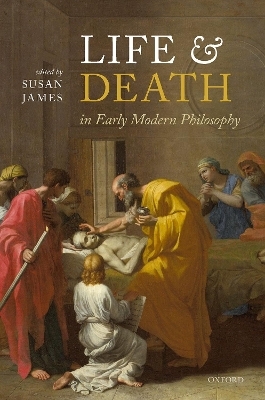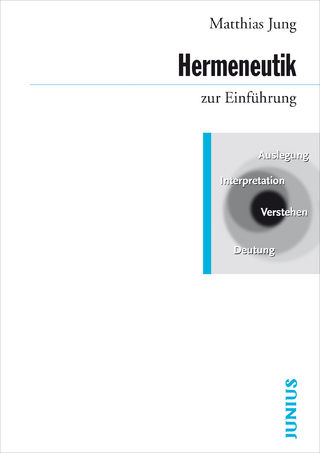
Life and Death in Early Modern Philosophy
Oxford University Press (Verlag)
978-0-19-284361-6 (ISBN)
This book sets out to convey the breadth of philosophical interest in life and death during the early modern period. It ranges over debates in metaphysics, the life sciences (as we now call them), epistemology, the philosophy of mathematics, philosophical psychology, the philosophy of religion, the philosophy of education, and ethics. At the same time, it aims to illuminate the relationships between the problems explored under these headings. Much of the fascination of early modern discussions of life and death lies in the way apparently disparate commitments merge into strange and unfamiliar outlooks, and challenge some of our most deeply rooted assumptions.
In recent years there has been a wave of interest in the place of the life sciences within early modern natural philosophy, and biological questions about life and death form part of the subject matter discussed in these chapters. But Life and Death in Early Modern Philosophy has a further ambition: to link the predominantly theoretical preoccupations associated with the study of organisms to the practical aspect of philosophy. Instead of giving priority to themes that anticipate the preoccupations of modern science, the volume aims to remind us that philosophy, as our early modern predecessors understood it, was also about learning how to live and how to die--this, above all, is why life and death mattered to them.
Susan James is Professor of Philosophy at Birkbeck College London. Her main areas of interest are early modern philosophy, feminist philosophy, political philosophy, and the philosophy of art. Her publications include Passion and Action: The Emotions in Early-Modern Philosophy (Oxford, 1997), Spinoza on Philosophy Religion and Politics: The Theological-Political Treatise (Oxford, 2012); and Spinoza on Learning to Live Together (Oxford, 2020).
Susan James: Introduction
I Feeling Alive
1: Ursula Renz: The Consciousness of Being Alive as a Source of Knowledge
II Immortality
2: Michael Moriarty: 'The Thought of Death Changes All our Ideas and Condemns our Plans': Early modern Christian philosophical perspectives on death
3: Matteo Favaretti Camposampiero: The Banishment of Death: Leibniz's Scandalous Immortalism
III Learning to Live
4: Giuliana di Biase: Human Life as a State of Mediocrity in John Locke
5: Lisa Shapiro: Learning to Live a Human Life
6: Julie R. Klein: Spinozan Meditations on Life and Death
IV Learning to Die
7: Michael Jaworzyn: 'Meditatio Mortis', Post-Cartesian Conceptions of Life and the Conjunction of Mind and Body
8: Piet Steenbakkers: Living Well, Dying Well: Life and Death in Spinoza's Philosophy and Biography
9: Piero Schiavo: Prevailing over Death: Democritus and the Myth of a Philosophical Death
V Suicide
10: Sarah Tropper: When the Manner of Death Disagrees with the Status of Life. The Intricate Question of Suicide in Early Modern Philosophy
11: Teresa Tato Lima: David Hume's Philosophical Approach to Suicide
12: John J. Callanan: Less than Zero: Kant's Opposition to Suicide
VI Inanimate and Animate
13: Barnaby R. Hutchins: 'Everyone knows what life is': Life as an Irreducible in and outside of Descartes' Metaphysics and Biology
14: Steph Marston: Affect and Effect: Spinoza on Life
15: Charles T. Wolfe: Vitalism and the Metaphysics of Life: The Discreet Charm of Eighteenth Century Vitalism
| Erscheinungsdatum | 02.09.2021 |
|---|---|
| Verlagsort | Oxford |
| Sprache | englisch |
| Maße | 163 x 240 mm |
| Gewicht | 702 g |
| Themenwelt | Geisteswissenschaften ► Philosophie ► Allgemeines / Lexika |
| Geisteswissenschaften ► Philosophie ► Erkenntnistheorie / Wissenschaftstheorie | |
| Geisteswissenschaften ► Philosophie ► Ethik | |
| Geisteswissenschaften ► Philosophie ► Geschichte der Philosophie | |
| Geisteswissenschaften ► Philosophie ► Philosophie der Neuzeit | |
| ISBN-10 | 0-19-284361-3 / 0192843613 |
| ISBN-13 | 978-0-19-284361-6 / 9780192843616 |
| Zustand | Neuware |
| Informationen gemäß Produktsicherheitsverordnung (GPSR) | |
| Haben Sie eine Frage zum Produkt? |
aus dem Bereich


